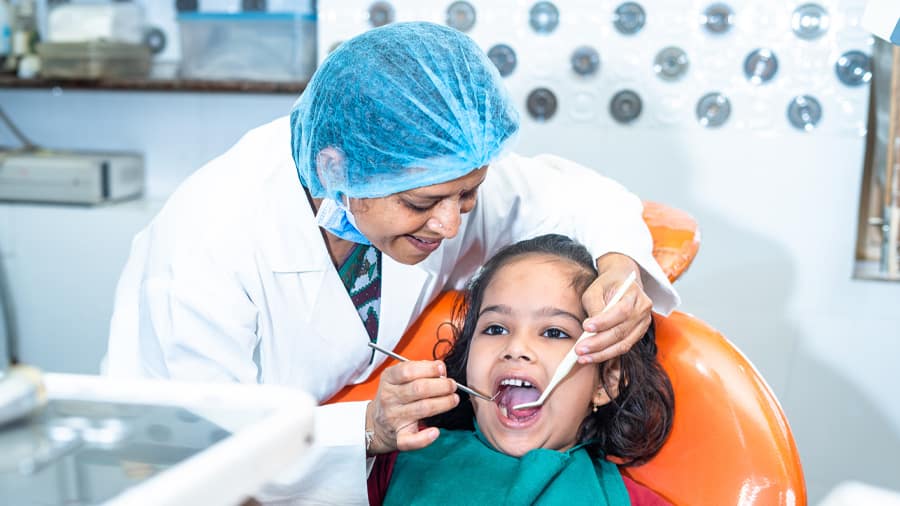Best Pediatric Dentist Oakland for Your Child's Dental Needs
Best Pediatric Dentist Oakland for Your Child's Dental Needs
Blog Article
Pediatric Dental Emergencies: What Moms And Dads Need to Know for Quick and Effective Therapy
In the realm of pediatric healthcare, oral emergencies can emerge suddenly, leaving parents not sure of how to deal with the scenario properly. Recognizing the signs, kinds of injuries, and prompt actions to take can make a substantial difference in the result for a youngster's oral health and wellness. With a fast and suitable feedback, parents can mitigate possible long-term effects and ensure their youngster gets the necessary treatment immediately. By being prepared and notified, parents can play a critical duty in protecting their kid's dental well-being.
Indications of Pediatric Dental Emergencies
When assessing pediatric oral emergencies, it is essential for parents to be watchful for details signs suggesting possible serious problems. Among the key signs of a dental emergency situation in children is persistent tooth pain that is not relieved by over-the-counter pain medications. This might suggest a hidden infection or damage that calls for immediate focus from a dental expert. Swelling in the periodontals, face, or jaw location is an additional warning that must not be ignored, as maybe an indicator of an abscess or other significant dental condition.

Typical Kinds of Dental Injuries
Common sorts of oral injuries in kids usually arise from crashes or sports-related activities that can bring about different kinds of trauma to the mouth and teeth. One common oral injury is a broken tooth, which can vary from a small chip to a more serious break involving the internal layers of the tooth. One more frequent injury is a knocked-out tooth, where instant activity is essential to boost the opportunities of conserving the tooth. Youngsters may likewise experience oral injuries like tooth intrusion, where the tooth is pushed into the jawbone, or avulsion, which is the complete variation of a tooth from its socket. Furthermore, dental injuries can include luxation, where the tooth is displaced however not entirely knocked out, or soft cells injuries to the gum tissues, lips, or tongue. It is vital for parents to be knowledgeable about these common kinds of dental injuries to supply punctual and proper treatment in situation of emergencies.
Immediate Emergency Treatment Measures
Upon running into a pediatric oral emergency situation, swift visit and appropriate emergency treatment procedures are crucial to minimize discomfort and protect against additional difficulties. For a knocked-out tooth, instruct the kid to gently rinse the tooth with water, attempting not to touch the origin, and area it back in the socket preferably. If re-implantation is not practical, save the tooth in a container of milk or the youngster's saliva till getting to the dental expert. In cases of a broken or broke tooth, wash the mouth with warm water and apply a chilly compress to reduce swelling. A bitten lip or tongue must be cleansed gently with water, and a chilly compress can assist minimize pain and minimize swelling. For items stuck between teeth, avoid making use of sharp tools and instead encourage the child to delicately floss to displace the product. In all circumstances, it is important to contact a pediatric dental expert promptly for further examination and treatment.
When to Look For Specialist Help
Seeking timely oral treatment from a pediatric expert is critical in attending to possible complications developing from pediatric dental emergency situations. Parents need to seek professional assistance instantly if their child experiences extreme tooth pain, face swelling, hemorrhaging that doesn't stop, a knocked-out irreversible tooth, or any kind of injury to the mouth or face. These indicators indicate a severe dental problem that calls for instant interest from a pediatric dental practitioner.
In addition, if a child suffers relentless tooth sensitivity to hot or cool, problem eating or swallowing, or indicators of infection such as pus around the periodontals, parents ought to not delay in seeking specialist oral treatment. These signs can show underlying oral problems that require to be resolved quickly to stop more difficulties.
In instances of oral emergencies, it is critical for moms and dads to get in touch with a pediatric dentist as soon as feasible to make certain correct diagnosis and treatment - pediatric dentist. Postponing specialist help can cause exacerbated oral issues and long term pain next page for the kid

Avoiding Future Oral Emergency Situations
To reduce the probability of future oral emergencies, moms and dads ought to focus on regular dental health practices and routine sees to a pediatric dental expert for precautionary care. Motivating kids to comb why not try this out their teeth two times a day with fluoride tooth paste and teaching them the appropriate strategy for 2 minutes each time can dramatically lower the danger of dental issues.
Regular brows through to a pediatric dental expert for examinations and cleanings are vital for very early detection of any type of potential dental problems. These appointments permit the dentist to keep an eye on the youngster's oral health and wellness, supply expert cleansings to remove plaque and tartar accumulation, use fluoride therapies for added protection, and deal assistance on proper oral care methods.
Final Thought
In final thought, moms and dads should be conscious of the signs of pediatric dental emergencies, common kinds of oral injuries, immediate initial aid procedures, and when to seek expert aid. By taking proactive actions to avoid future oral emergency situations, moms and dads can guarantee fast and reliable therapy for their kids. It is vital to remain educated and prepared in order to manage any type of dental emergency situation that might develop.
Report this page